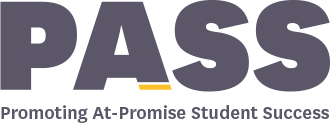TAILORING SUPPORT
Articles
Tailoring Programs to Best Support Low-Income, First-Generation, and Racially Minoritized College Student Success.
This article draws on a five-year mixed methods study and focuses on the way staff tailor support within a comprehensive college transition program to meet the needs of low-income, first-generation, and racially minoritized students by adapting programmatic offerings and requirements to fit students’ multifaceted needs. The study also identifies the way tailoring reduces cognitive load for students because the tailored interventions are embedded within a single program, rather than having students visit dozens of offices trying to piece together the support they need. The program created an approach to tailoring student support that draws on the best of predictive analytics and case management simultaneously while also being non-deficit and asset-based. Our study contributes to the literature by identifying the value of tailoring approaches to address students’ multiple needs and identities.
Learning How to Tailor Programmatic Offerings to Support Low-income, First-generation, and Racially Minoritized Student Success.
This study focused on the process of how the staff at the Thompson Scholars Learning Community, a comprehensive college transition program, tailored the programmatic offerings to meet the needs of low-income, first generation, and racialized minority stu-dents. Because college students are complex individuals, each of whom faces a unique set of challenges and opportunities, it is reasonable to hypothesize that tailoring sup-port services to the multiple needs of each student may make them more effective. The research identified a four-part iterative and cyclical process to tailor the programmatic offerings for students, beginning with the individual student and then using informa-tion about individual needs to scale to broader group level tailoring. This broadening or scaling process is a new contribution to the literature that has not previously been identified. The tailored approach we identified works at both individual and group lev-els, which makes it viable as an intervention for large numbers of students. The effort to attend to and learn about individual students ensures that the intervention still meets the needs of individuals, but the testing of these interventions more broadly allows for understanding how these approaches will work for diverse group level tailoring.
Briefs
Tailoring Programs to Support Student Success
While institutions have paid increased attention to the needs of at-promise college students, enduring gaps continue related to their persistence and graduation. Often support services exist within silos to target a single aspect of identity (e.g., financial aid, multicultural center) and the onus to gain support is placed on students to connect resources to build comprehensive support systems. Instead, we propose the idea of tailoring as a means for providing support for students that meet individual needs and provide proactive support broadly. To tailor programs, staff, administrators, and faculty (hereafter referred to as institutional agents) do two things simultaneously.1 They identify individual student needs while exploring if those needs reflect broader trends among the students served in the program. Staff then develop initiatives within the overall program for groups of students to address their multiple needs and complex identities. As compared to case management models that operate on an individual level, institutions may have many tailored programmatic supports, effectively serving thousands of students. In the Thompson Scholars Learning Communities (TSLC), tailoring was an effective way to support students with learning disabilities, mental health concerns, undocumented status, and/or financial insecurity.

